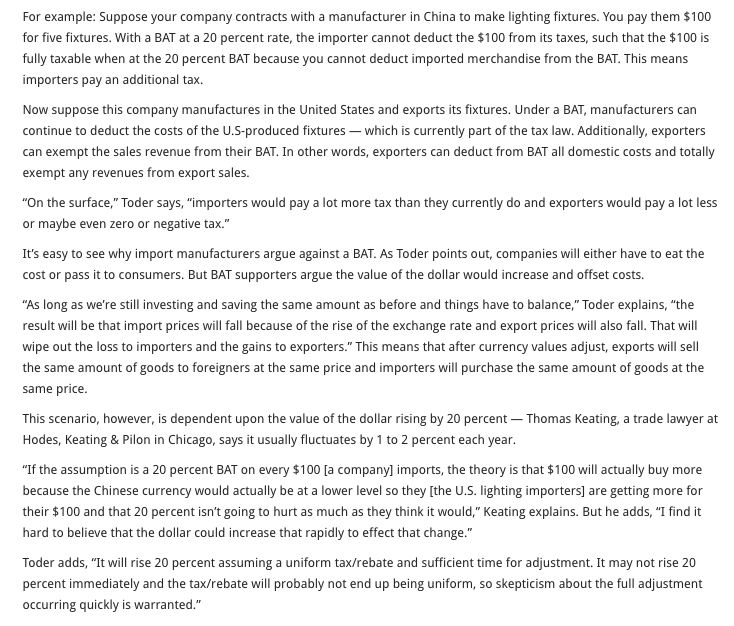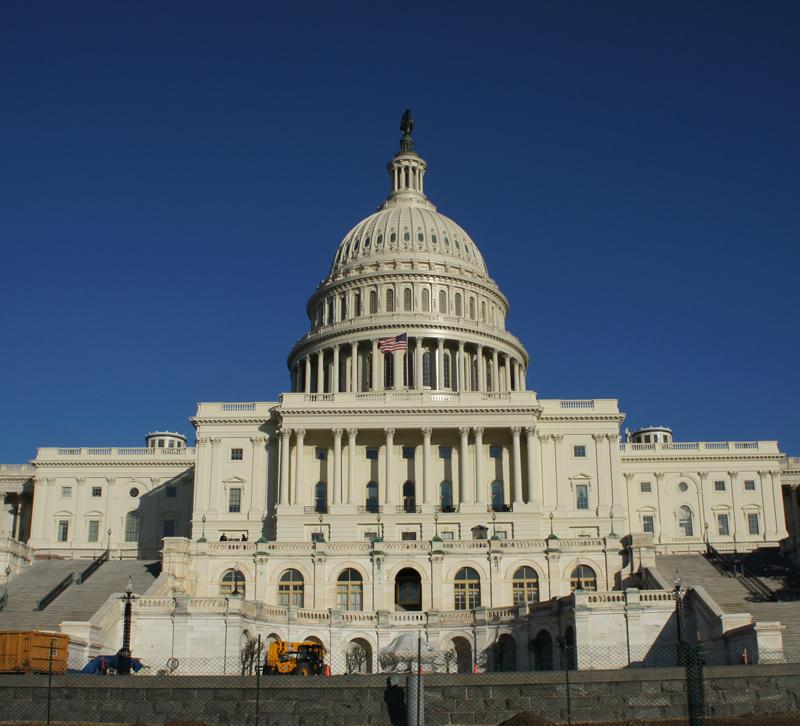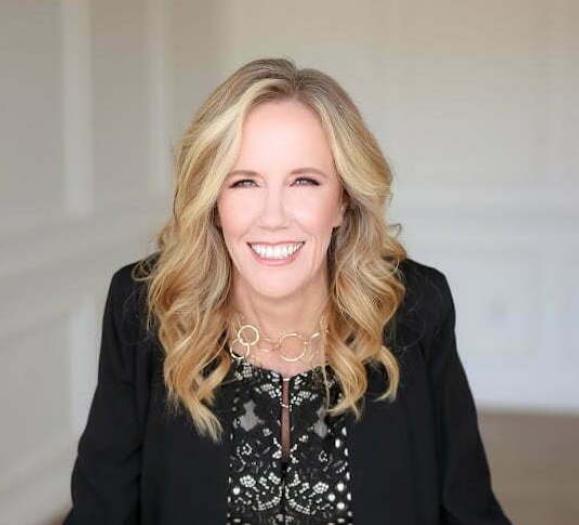Last week, American Lighting Assn. (ALA) and Home Furnishings Assn. (HFA) members headed to D.C. for independent meetings with Congressional members. Their goals? Discuss upcoming legislative concerns most likely to affect the home design industry — and if you've been reading the news lately, then you know there are several issues to be concerned with.
We've got the scoop on what went down. Here's what you need to know.
The Issues
This year, ALA and HFA members had plenty to discuss with legislatures. Here's what was most important and why you need to know about it.
Border Adjustment Tax (BAT)
Of all the issues HFA discussed with legislatures, the Border Adjustment Tax (BAT) remained at the top of the list, according to Sharon Bradley.
In our May issue, we took a deep drive into the BAT, and it's anything but simple. A BAT is a destination-based cash flow tax, which means the tax is levied at the place of consumption. Importers will pay an additional tax to bring products into the United States while exporters will not have to pay a tax when they send out their products. This legislation has serious consequences for both the lighting and furniture industries because so many manufacturers import their products to the United States.
From our May issue:

Michael Weems, Vice President of Government Engagement at ALA, says the ALA considers the BAT "dead on arrival" in the Senate, since so much of their discussion of it took place in the House.
Bradley says she feels like Congress heard HFA's concerns. "Most everyone our members spoke with agreed that the BAT is not the best answer to tax reform and that repealing debit swipe fee reform would be bad for retail across the board, not just for furniture retailers," she said.
Cynthia Heathcoe, CEO of Contemporary Living in Palm Beach Gardens, FL, and HFA member, said all representatives she met with understood their concerns regarding the BAT and were willing to listen.
Heathcoe says a BAT would "shut down her business," and she made sure representatives heard her voice. Now the decision is out of her hands, but she says she feels grateful to be able to voice her opinion.
The Durbin Amendment
You're familiar with the Dodd-Frank Act of 2010, which set regulations on the banking industry in response to the recession, but you may be unfamiliar with a little-known, yet very important amendment called the Durbin Amendment. Named for sponsor Illinois Sen. Richard Durbin (D), the amendment sets a cap for debit card transactions. Before 2011, debit card fees that merchants paid whenever a customer swiped their card in their store went unregulated. Banks could charge what they wanted, and they did. The average charge was about 44 cents per transaction. That may seem small when you consider big-box retailers regularly ring up hundreds of dollars per transaction, but for coffee shops and stores where transactions were much smaller, that 44 cents made a difference. Under the Durbin Amendment, the Federal Reserve capped debit card transaction fees to 21 cents per transaction plus 5 percent of the transaction amount, according to Investopedia.
Banks were naturally against such regulation, and in some ways, consumers have been affected. To offset the loss of revenue, many banks stopped offering free checking accounts and increased fees in other areas. Some feared small banks and credit unions would lose too much, but the law exempts banks with less than $10 billion or less in assets.
"Repealing debit swipe fee reform would be bad for retail across the board, not just for furniture retailers," Bradley says.
This month, House Financial Services Chairman Jeb Hensarling (R-Texas) introduced the Financial CHOICE Act to the house, which includes language that would do away with the Durbin Amendment. Other trade groups and lobbyists for banks and retailers have descended on the District over the last week to voice their concerns, and as of the morning of May 25, Politico reported that language to repeal the Durbin Amendment would be eliminated from the Financial CHOICE Act.
Internet Fees
One of the greatest concerns for small retailers retailers over the last few years has been leveling the playing field between brick-and-motor stores and online stores. Though they may offer the same price for the same product, internet retailers do not usually have to pay sales tax (with a few exceptions based on state laws), so while customers may view a product in a store, they'll still buy it online. The issue is especially frustrating for retailers and sales representatives.
"Local retail stores lose sales everyday to ecommerce sites because of sales tax not being collected," says Martha Graham, lighting representative, ALA member and owner of Martha Graham and Associates, Inc. "Consumers receive the sales tax as a discount, and in some areas such as my territory, it is 7 percent. The local retail store loses the sale and so does the local community in sales tax and retail store closings."
There isn't much movement on the issue of internet sales tax at the moment. The Marketplace Fairness Aact was last introduced to the House in 2013. In her experience, Heathcoe has seen this issue placed on the back burner time and time again.
"Nobody wants to get involved in it, and I'm blown away by that," she says.
How You Can Help
In modern politics, people often have feelings of helplessness and disillusionment, but Weems says these fly-ins have produced results. Due to efforts of the ALA, the House passed a bill that would exempt LED drivers from unessessary regulation by the U.S. Department of Energy. The bill is currently waiting in the Senate.
So how can you make a difference? You can:
- Know your local representatives at the state and federal level. You can read about their backgrounds and follow their voting records at VoteSmart.org.
- Get involved with local politics and attend town hall and city council meetings when possible. While a lot of power is in the District, just as much resides in your backyard. Being involved will make you a more informed citizen and a better voter.
Weems says the ALA plans to do up to 25 fly-ins this year, but the success of these fly-ins comes from the ALA members who participate.
"They're very dedicated to the industry, and they're dedicated to growing and building their businesses and one of the things they can do is engage in the political process."
Photo: brownpau







